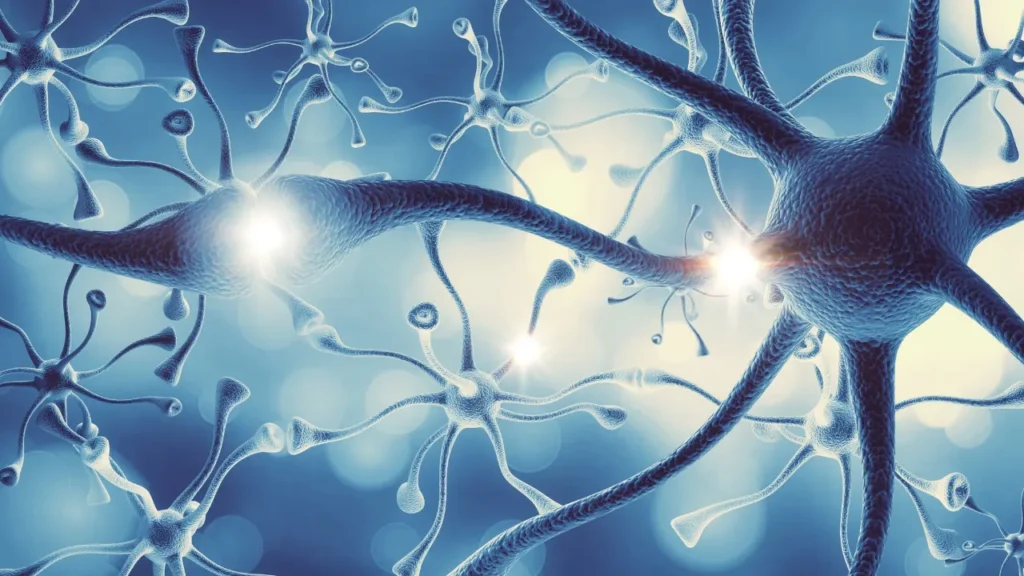Amino acids of the aspartate type are essential to the functioning of the human organism. They are engaged in many physiological processes. Examples of these processes include the synthesis of proteins, the creation of energy, and the control of neurotransmitters. Additionally, Aspartates are sold as dietary supplements with promise of advantages ranging from greater athletic performance to improved cognitive function. We shall examine the nature of Aspartates, their health advantages, the best dosage, any potential negative effects, and any drug interactions in this post. We will also go into the specifics of aspartate chemistry and the physiological processes that underlie how they affect the body and the brain.
You May Also Like:
Should You Try CBD for Focus? Here Are the Facts.
CBD for Concentration: 3 Epic Benefits that Boost Your Focus
ASPARTATES: Benefits, Dosage, Side Effects, Drug Interactions, And Other Important Information is an original (NootropicsPlanet) article.
Nature of Aspartates
A vital type of amino acid for human health is Aspartates. They are categorized as non-essential amino acids, which means that when needed, the body can produce them from other amino acids. Aspartates play a crucial role in the manufacture of neurotransmitters including glutamate and GABA in the brain, where they serve as precursors. Due to their participation in the Krebs cycle, which produces ATP, the body’s main source of energy, Aspartates also contribute to the synthesis of energy.
Various foods, including meat, fish, dairy products, and legumes, contain Aspartates. They are also accessible as dietary supplements in the forms of magnesium aspartate, potassium aspartate, and zinc aspartate and can be synthesized in the lab.
Health Benefits of Aspartates
Aspartates offer a number of health advantages, especially in terms of mental and physical athletic performance. These statements, however, are only partially supported by scientific research.
The ability of Aspartates to enhance athletic performance is one of their main claims. Aspartates improve energy production and lessen the development of lactic acid in the muscles, which can boost endurance and decrease fatigue.
According to research in the Journal of Sports Medicine and Physical Fitness, supplementing with magnesium aspartate increased football players’ aerobic capacity and endurance. Another study indicated that weightlifters’ muscle strength and power increased when they took potassium aspartate supplements, according to the Journal of the International Society of Sports Nutrition.
Moreover, Aspartates improve cognitive abilities, particularly those related to memory and learning. Aspartates may raise the concentrations of neurotransmitters like glutamate and GABA in the brain, which enhance brain function.
According to research in the Journal of Psychopharmacology, elderly persons in good health who took magnesium aspartate supplements had better cognitive function. Another study indicated that aspartate supplementation enhanced memory and cognitive performance in those with Alzheimer’s disease. This study was also published in the Journal of Clinical Psychopharmacology.

Chemistry
Aspartates are amino acids that have a carboxyl group (-COOH) and an amino group (-NH2) as part of their structure. Aspartates have a particular structure that consists of an amino group, a carboxyl group, and a side chain.
Due to the carboxyl group, aspartates are negatively charged at physiological pH. Aspartates are crucial for stabilizing the structure of proteins because the carboxyl group has the ability to participate in hydrogen bonding.
Aspartates have a role in a number of physiological activities, including the synthesis of proteins and the creation of energy. The Krebs cycle, which produces ATP, the body’s main source of energy, involves Aspartates. As one of the 20 amino acids that go into making proteins, Aspartates are used in the process.
Aspartates play a crucial role in the manufacture of neurotransmitters including glutamate and GABA in the brain, where they serve as precursors. The most prevalent excitatory and inhibitory neurotransmitters in the brain are glutamate and GABA, respectively.
Physiological Mechanisms of Action
Aspartates function as amino acids and participate in a number of metabolic processes, which give rise to a number of physiological mechanisms of action in the body.
Energy Generation: Aspartates are essential for the body’s ability to produce energy. They participate in the Krebs cycle, sometimes referred to as the citric acid cycle, a chain of chemical events that produces ATP, the body’s main source of energy. Oxaloacetate, a chemical necessary for the Krebs cycle, is produced in part by Aspartates. Insufficient aspartate levels could hamper the body’s ability to produce energy.
Protein Construction: Aspartates are one of the 20 amino acids that go into making proteins, and they help the body produce new proteins. Amino acids are joined by peptide bonds to make polypeptide chains, which are then folded into proteins during the process of protein synthesis. Aspartates provide particular chemical features, such as hydrogen bonding and charge interactions, that help proteins in their structure and function.
Synthesis of Neurotransmitters: Aspartates play a crucial role in the manufacture of neurotransmitters. The most prevalent excitatory and inhibitory neurotransmitters in the brain are glutamate and GABA, respectively. Through a series of chemical processes, Aspartates are transformed into these neurotransmitters.
While GABA is important in the control of anxiety and sleep, glutamate is engaged in a number of physiological functions, including learning and memory. Aspartates play a crucial role in the production of these neurotransmitters and their concentrations in the brain can affect glutamate and GABA levels.
Aspartates may be able to scavenge free radicals, which are chemicals that can harm cells and tissues, according to certain research.

Optimal Dosage of Aspartates
Age, sex, and state of health are only a few of the variables that affect the ideal aspartate dosage. Before starting any supplements regimen, you are advised to speak with a healthcare professional.
Aspartates are non-essential amino acids, hence there is no recognized recommended daily allowance (RDA) for them. But 2 to 6 gm per day have been utilized in studies looking at how Aspartates affect athletic performance and cognitive function.
Side Effects of Aspartates
When taken in the recommended amounts, Aspartates are usually regarded as safe. However, consuming Aspartates in excess can have a number of negative effects, such as:
- Gastrointestinal distress
- Diarrhea
- Nausea
- Vomiting
- Headache
- Dizziness
Remember that some people can be more prone to certain adverse effects than others. When taking Aspartates, people with kidney or liver illness should use caution as they might not be able to process the amino acid adequately.

Substance Interactions with Aspartates
Certain compounds, including supplements and pharmaceuticals, may interact with Aspartates. Before starting a supplementing routine, people who are using drugs or other supplements should speak with their doctors.
Aspartates and diuretics, which are drugs that raise urine production, may interact. Due to their ability to lower blood pressure, Aspartates may also interact with drugs that are used to treat high blood pressure.
Other supplements, especially those containing magnesium, potassium, or zinc, may also interact with Aspartates. When using aspartate pills with other supplements that include these minerals, users should exercise caution.
Best Responsible Uses of Aspartates
While Aspartates may offer certain health advantages, it is crucial to remember that they cannot replace a balanced diet and active lifestyle. To achieve optimal health, people should make an effort to eat a balanced diet high in whole foods and get frequent exercise.
To assure purity and quality, it’s also for you critical to get Aspartate pills from reliable vendors. As with any supplement, people should take it as directed by the manufacturer and talk to a doctor before starting a supplementation plan.

ASPARTATES:
Conclusion
In modern times, it is more commonly known how important amino acids are to human health. Among the various types, Aspartates are growing in popularity. The effects they can have on areas such as brain health and physical health are prominent. It is a great supplement for supporting the production of energy. In addition to being a supplement, Aspartates are naturally occurring within various common foods. There are a variety that exist, so please perform due diligence in learning which ones support your health best.
References:
- “Aspartates.” Retrieved from: https://www.rxlist.com/supplements/aspartates.htm
- “Magnesium Aspartate Hcl Tablet, Delayed Release (Enteric Coated) – Uses, Side Effects, and More.” Retrieved from: https://www.webmd.com/drugs/2/drug-20754/magnesium-aspartate-hcl-oral/details/
- “Aspartic Acid.” Retrieved from: https://www.urmc.rochester.edu/encyclopedia/content.aspx?contenttypeid=19&contentid=AsparticAcid
- “Potassium Aspartate.” Retrieved from: https://supplewiki.com/potassium-aspartate/
- “Zinc Supplements: Benefits, Dosage, and Side Effects.” Retrieved from: https://www.healthline.com/nutrition/zinc-supplements
Important Note: The information contained in this article is for general informational purposes only, and should not be construed as health or medical advice, nor is it intended to diagnose, prevent, treat, or cure any disease or health condition. Before embarking on any diet, fitness regimen, or program of nutritional supplementation, it is advisable to consult your healthcare professional in order to determine its safety and probable efficacy in terms of your individual state of health.
Regarding Nutritional Supplements Or Other Non-Prescription Health Products: If any nutritional supplements or other non-prescription health products are mentioned in the foregoing article, any claims or statements made about them have not been evaluated by the U.S. Food and Drug Administration, and such nutritional supplements or other health products are not intended to diagnose, treat, cure, or prevent any disease.


